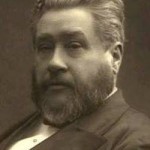Why We Defend Inerrancy from the minister has nothing to preach, our authority in preaching is completely compromised.” – Dr. Ligon Duncan
“In one sense, all we have to offer the world is truth and grace. And if you think you can maximize grace by minimizing truth, you are going to end up with neither. We don’t’ have an authoritative word if we don’t have an inerrant word.” – Kevin DeYoung
“This gets to the bottom line issue: What is the preacher doing? If the preacher is not standing and saying “thus sayeth the Lord,” then to some degree he is simply reflecting his own opinion. And when it comes down to that kind of opinion, quite frankly the distinction between “thus sayeth the Lord” and “here is what I think” is an infinite difference. The bottom line is what the congregation needs is the word of God. And the confidence in the word of God is what the pastor has to have, and then must share with that congregation. If the Bible is something less than inerrant, than it is something less than authoritative, and inevitably it will show up in preaching. The congregation is going to know it, and the preacher is going to know it. Because what isn’t heard is “thus sayeth the Lord.” – Dr. Al Mohler
Here is the Chicago Statement on Biblical Inerrancy, in its entirety. Originally published in 1978, it includes a preface, a summary statement, articles of affirmation and denial, and an exposition explaining the framers’ intent. It’s an extremely edifying read.
PREFACE
The authority of Scripture is a key issue for the Christian Church in this and every age. Those who profess faith in Jesus Christ as Lord and Savior are called to show the reality of their discipleship by humbly and faithfully obeying God’s written Word. To stray from Scripture in faith or conduct is disloyalty to our Master. Recognition of the total truth and trustworthiness of Holy Scripture is essential to a full grasp and adequate confession of its authority.
The following Statement affirms this inerrancy of Scripture afresh, making clear our understanding of it and warning against its denial. We are persuaded that to deny it is to set aside the witness of Jesus Christ and of the Holy Spirit and to refuse that submission to the claims of God’s own Word that marks true Christian faith. We see it as our timely duty to make this affirmation in the face of current lapses from the truth of inerrancy among our fellow Christians and misunderstanding of this doctrine in the world at large.
This Statement consists of three parts: a Summary Statement, Articles of Affirmation and Denial, and an accompanying Exposition. It has been prepared in the course of a three-day consultation in Chicago. Those who have signed the Summary Statement and the Articles wish to affirm their own conviction as to the inerrancy of Scripture and to encourage and challenge one another and all Christians to growing appreciation and understanding of this doctrine. We acknowledge the limitations of a document prepared in a brief, intensive conference and do not propose that this Statement be given creedal weight. Yet we rejoice in the deepening of our own convictions through our discussions together, and we pray that the Statement we have signed may be used to the glory of our God toward a new reformation of the Church in its faith, life and mission.
We offer this Statement in a spirit, not of contention, but of humility and love, which we propose by God’s grace to maintain in any future dialogue arising out of what we have said. We gladly acknowledge that many who deny the inerrancy of Scripture do not display the consequences of this denial in the rest of their belief and behavior, and we are conscious that we who confess this doctrine often deny it in life by failing to bring our thoughts and deeds, our traditions and habits, into true subjection to the divine Word.
We invite response to this Statement from any who see reason to amend its affirmations about Scripture by the light of Scripture itself, under whose infallible authority we stand as we speak. We claim no personal infallibility for the witness we bear, and for any help that enables us to strengthen this testimony to God’s Word we shall be grateful.
I. SUMMARY STATEMENT
1. God, who is Himself Truth and speaks truth only, has inspired Holy Scripture in order thereby to reveal Himself to lost mankind through Jesus Christ as Creator and Lord, Redeemer and Judge. Holy Scripture is God’s witness to Himself. Continue reading

